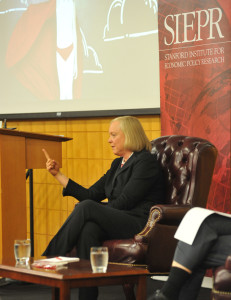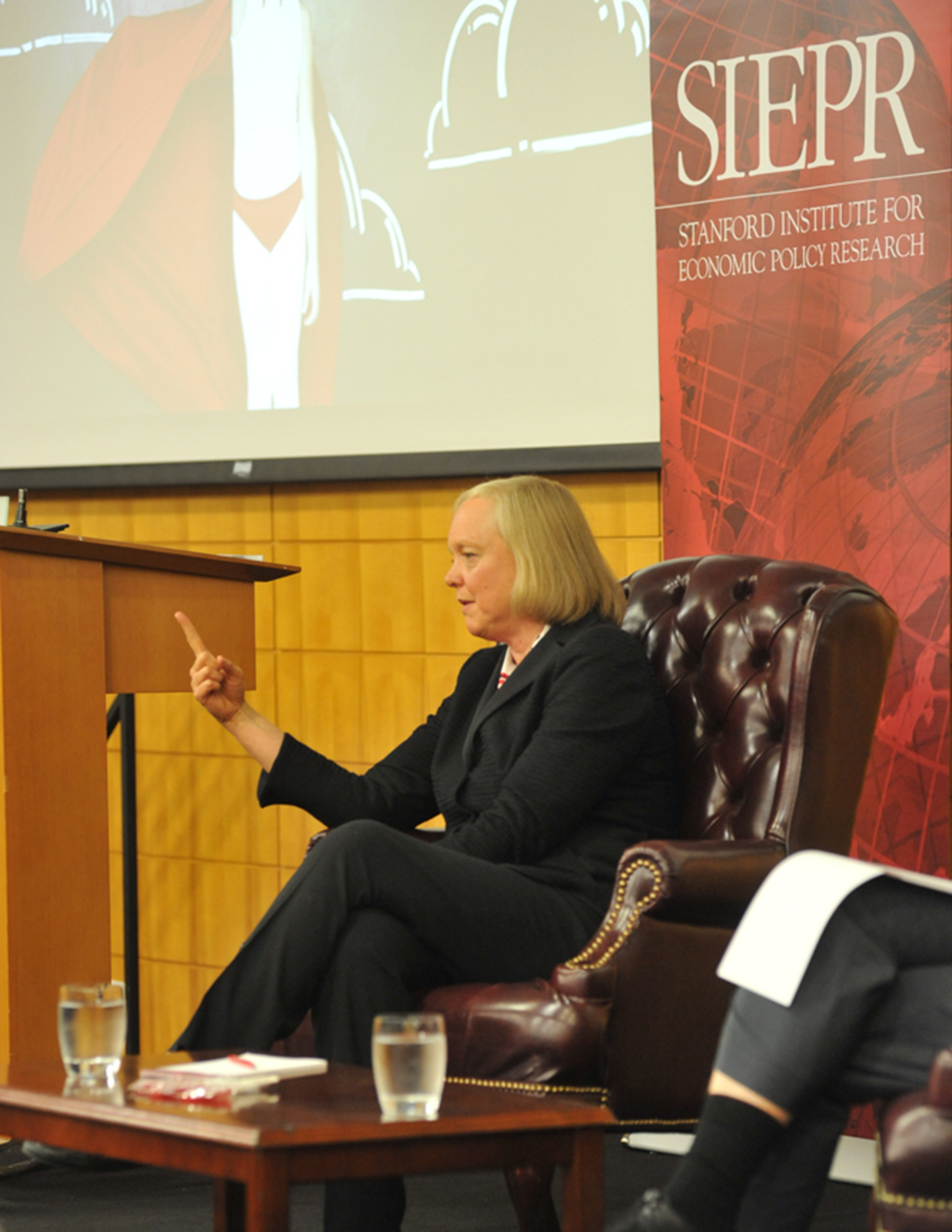Meg Whitman, CEO of Hewlett-Packard (HP), spoke at an associates meeting of the Stanford Institute for Economic Policy Research (SIEPR) on Monday evening, in front of a nearly full Koret-Taube Conference Room at the Gunn-SIEPR Building.
Whitman fielded questions on a wide variety of subjects ranging from the future of HP to the issue of immigration reform.
Claiming that it was important for companies to “pivot” to tomorrow’s markets, Whitman predicted that some profitable companies will shrink due to major changes occurring in the technology industry.
Whitman also stressed the need for more, larger data centers, expressing concerns about the space, cost and energy demands of current servers. Whitman said that barring action, servers could take up 30 percent of world electricity demand by the end of the decade.
One audience member asked Whitman if HP was still a relevant company. Whitman noted challenges in finding talent in the Silicon Valley, but claimed that HP had a good reputation to attract talent in other countries.

Whitman fielded several other questions about HP’s business decisions and structure. Although HP will remain headquartered in the Silicon Valley, expansion in operations such as manufacturing was likely to take place elsewhere, she said. When asked about the benefits and challenges of scale, Whitman claimed that HP benefited from scale but noted that “you have to be a bureaucracy buster every single day.”
Although many questions related directly to HP’s operations, some questions were about other matters, including the state of patent law in the United States. Whitman expressed dissatisfaction with the current system and said that the Patent and Trademark Office has failed to adequately modernize.
Whitman also expressed dismay with the current immigration system and stated her belief that foreign students who earn Ph.D.’s in science, technology and engineering fields should automatically receive a green card, which would allow such students to become U. S. permanent residents.
Whitman’s talk impressed at least some members of her audience.
“[It was a] very impressive presentation,” said Jay Siegel Ph.D. ‘70. “She handled the questions very well.”
Contact Caleb Smith at caleb17 ‘at’ stanford ‘dot’ edu.
